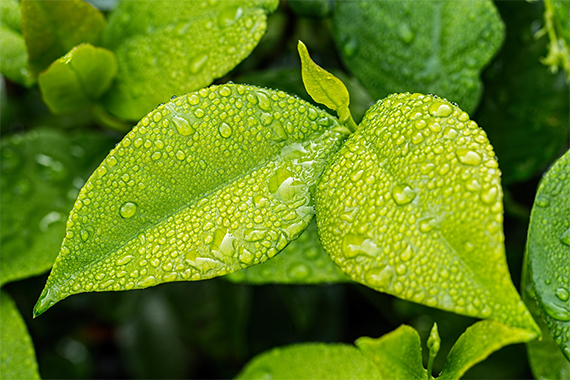More news
- New Managing Director of BASF’s Coatings division
- Global New Material International (GNMI) to acquire Merck’s Surface Solutions busine...
- Delta Coatings unveils plans for global eco-friendly HQ and plant
- PPG recognised for sustainability progress by FTSE4Good for sixth consecutive year
- ChemQuest expands Business Development team, names four VPs

Speciality chemicals company Lanxess has reached an important step toward more sustainability in its portfolio of polyols and oxidation products (POP): The Advanced Industrial Intermediates (AII) business unit now offers more sustainable solutions for around 80% of its POP portfolio. Seven of the nine products, including the chemicals trimethylolpropane (TMP), adipic acid (ADA), 1,6-hexanediol (HDO) and phthalic anhydride (PSA), have already successfully completed Lanxess’ internal Scopeblue certification. The remaining ones are to follow soon.
“As a result, we will be one of the first producers to offer our customers a choice between conventional products and products with an improved carbon footprint,” says Dr. Stephan Deutsch, Head of the Business Line POP at Lanxess. Sustainability is now much more than an end in itself for the chemical industry. “Already around 50% of our customers have set themselves fixed climate targets for the coming years, similar to Lanxess,” Deutsch continued. “We are therefore convinced that Scopeblue will open up important opportunities for us in the markets.”
With the Scopeblue brand label, Lanxess marks products that either exhibit a sustainable raw material content of more than 50% or offer a carbon footprint of less than half of that of their conventional counterparts. To demonstrate the use of sustainable raw materials along the entire value chain, Lanxess has had its production facilities in Krefeld-Uerdingen certified by TÜV Nord to the internationally recognised ISCC PLUS sustainability standard.
Sustainable and powerful
The new sustainable TMP Scopeblue contains around 54% n-butyraldehyde produced from biogas and offers the same properties as the conventional variant. “We have already produced the first batch of TMP Scopeblue for one of our largest customers. Currently, we are in talks with several other interested parties,” reports Dr. Maria Guixà, Global Marketing Manager TCM (Trimethylolpropane, Calcium Formate and Maleic Anhydride) at Lanxess. “As our product has a very broad application portfolio we see great potential here. Among others, TMP is used for the production of coatings, resins, UV-curable coatings, as well as for polyurethane applications.”
Competitive advantage
The Scopeblue variants of adipic acid and 1,6-hexanediol, for example, are produced from bio-based or bio-circular cyclohexane. As a result, they have a significantly improved carbon footprint compared with conventionally manufactured products. “As early as 2021, we were able to offer a certified carbon footprint for our portfolio for the first time and generate added value for our customers through this transparency,” says David Berhorst, Head of Marketing AHP (adipic acid, 1,6-hexanediol, phthalic anhydride) at Lanxess. Thanks to the two nitrous oxide reduction facilities in the adipic acid plant, which decompose the nitrous oxide generated in the production process, Lanxess has already been able to manufacture these basic chemicals with significantly lower emissions than is usual in the market. “The use of bio-based raw materials now enables us to better support customer requests for more sustainable or even CO2-neutral products,” Berhorst explains.
Exploiting new opportunities
Raw materials offer the greatest leverage for further improving the carbon footprint of POP products. This is also emphasised by Eric Hendricks, Sustainability Manager at the Business Line POP. The company is therefore working on replacing more raw materials with “green” variants. “There is not yet an alternative for everything,” says Hendricks. “We are working on solutions here with partners along the entire value chain to position ourselves clearly and early on the supply side as well.”
The main demand for the sustainable POP products currently comes from Europe. But Lanxess also sees potential in the Asian and American markets – because competitors there do not yet have any green alternatives in their portfolios. “We definitely want to be an early mover in sustainability,” Deutsch summarises. “The market will increasingly demand innovative, sustainable products in the coming years. And if we create the right basis for this with our products, which are at the very beginning of the value chain, there will be many new opportunities for our business.”



